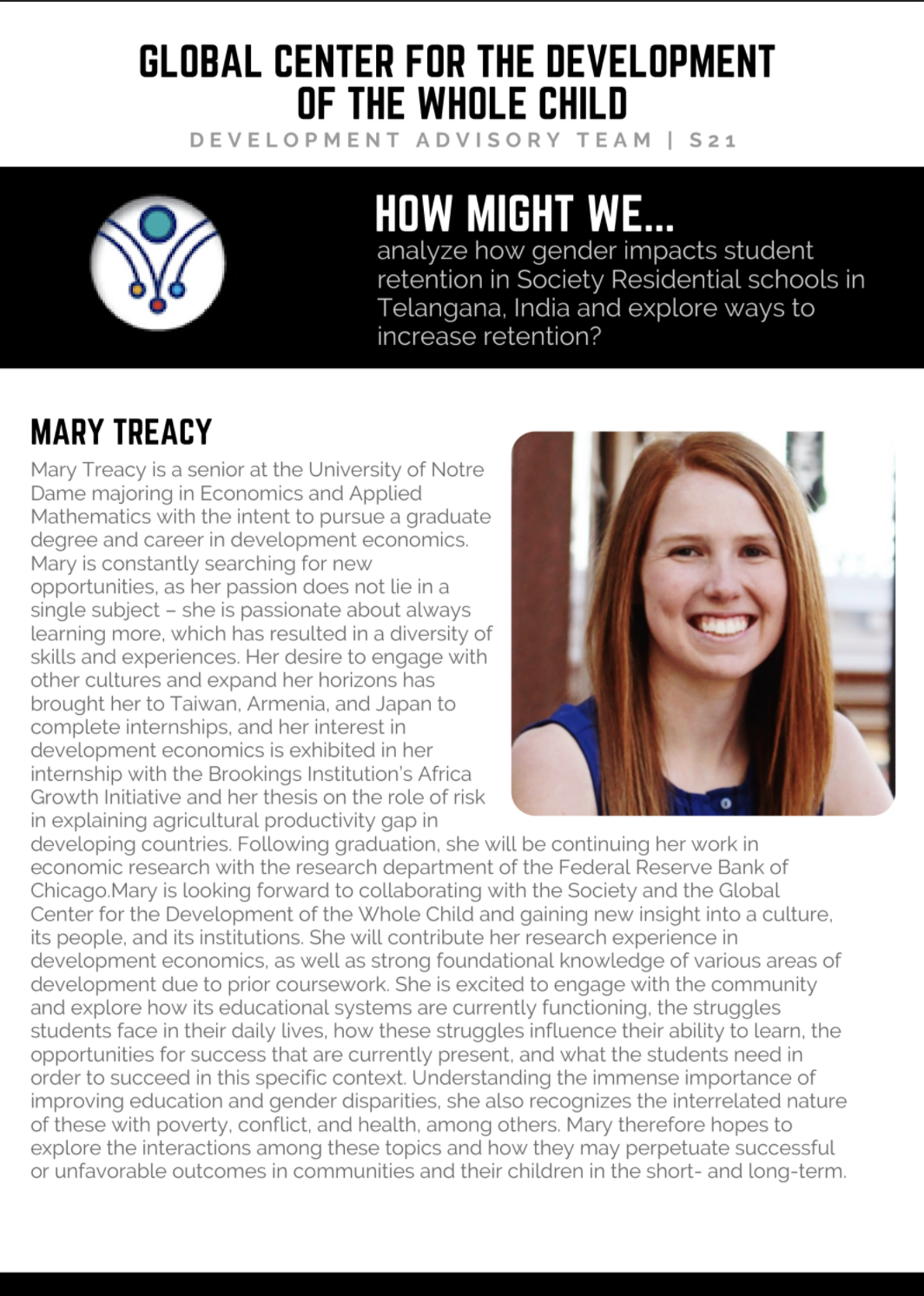Project Background:
In the southern Indian state of Telangana, the Telangana Social/ Tribal Welfare Residential Education Institution Societies (the “Society”), a government office dedicated to improving educational outcomes for historically marginalized students through residential education, works to advance the social and educational equity of children by offering them more effective, high-quality and holistic learning and life skills opportunities. Developing a holistic education system that meets the complex needs of these learners requires careful assessment of how both existing and potential activities align within a whole-child development approach (an approach that addresses all aspects of a child’s well-being: physical, cognitive, social and emotional). Notre Dame’s Global Center for the Development of the Whole Child (GC-DWC), as the leading organization for this project, will match the society’s vision with the tools and supports it needs to achieve its goals, refine its processes, and sustain them into the future.
In this newly-started project (December 2020 - September 2024), the GC-DWC will support and advise key educators and members of the society, including teachers and principals, on how to develop and integrate a whole-child development framework into program activities. The GC-DWC also will strengthen the society’s capacity to adopt a whole-child development lens in programming by offering best-practice workshops as well as training on how to measure the efficacy and impact of their programs. The inclusive design of the research process strives to ensure the sustainability of project activities long after the project period.
Opportunity:
Within the context of Project Sampoorna, there is opportunity to explore, in detail, ways in which gender impacts student retention in India and more specifically in Society Residential schools in Telangana. Early marriage often results in girls having to leave school early, and boys often drop out early to support income needs for their families. As the GC-DWC begins its work with the Society, a detailed look at how gender impacts education programming and how to improve retention rates within Residential schools throughout Project Sampoorna is essential.
Definition of Success:
Display of a collaborative relationship with the Society & the GC-DWC
A deep understanding of gender issues in education in India, with a specific grasp of Society programming and the Project Sampoorna approach.
A clear & useful proposal for programming solutions to this need
Meet the Team:
Final Deliverables:
Final Presentation
Handout



